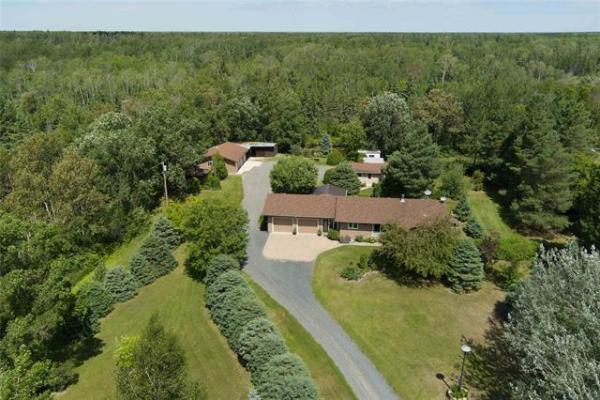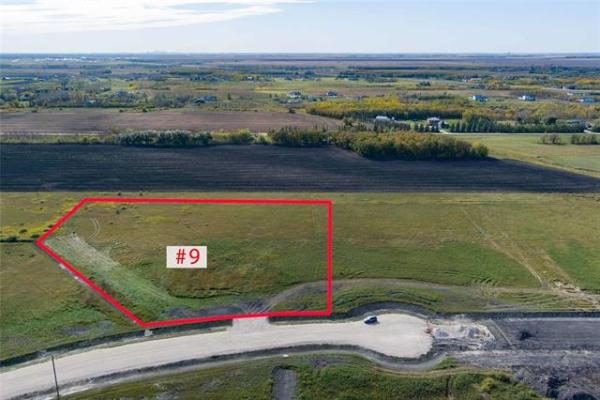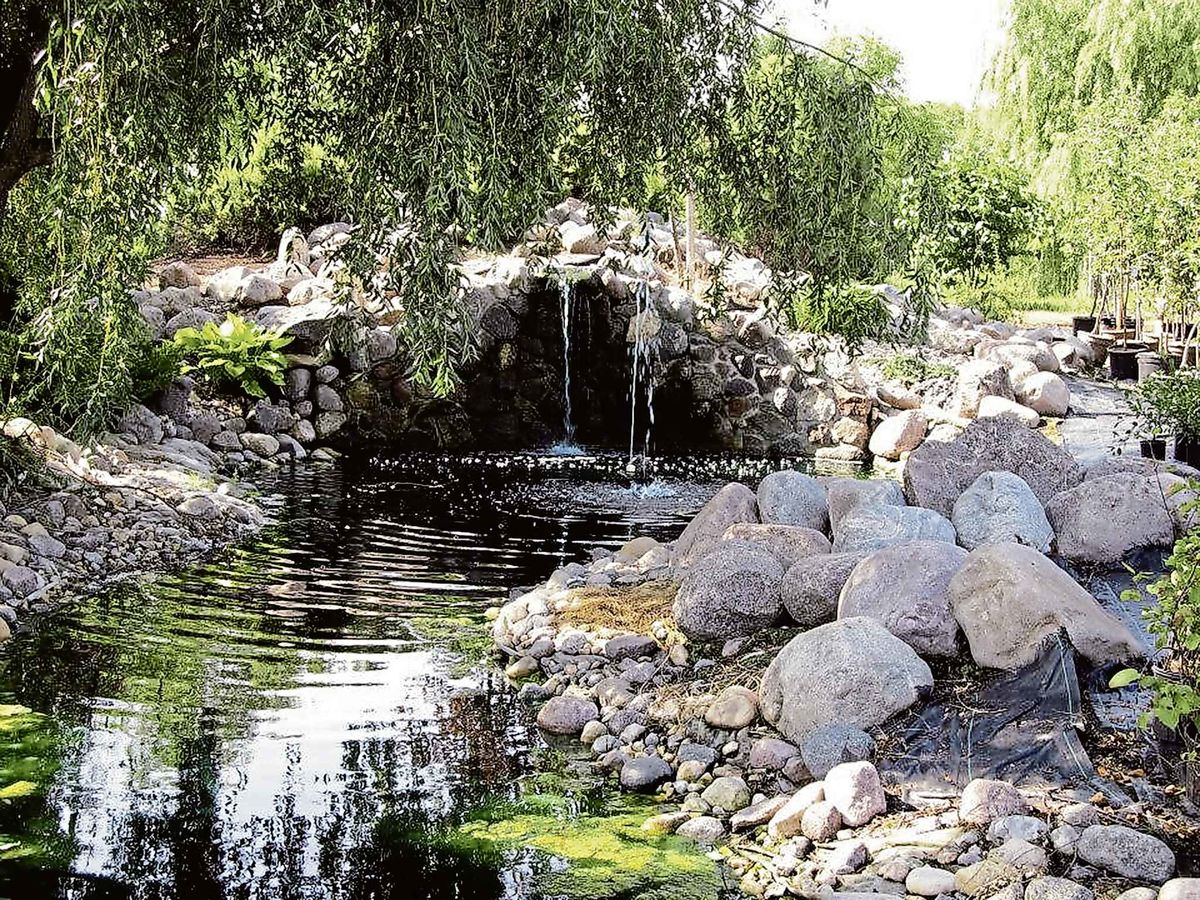
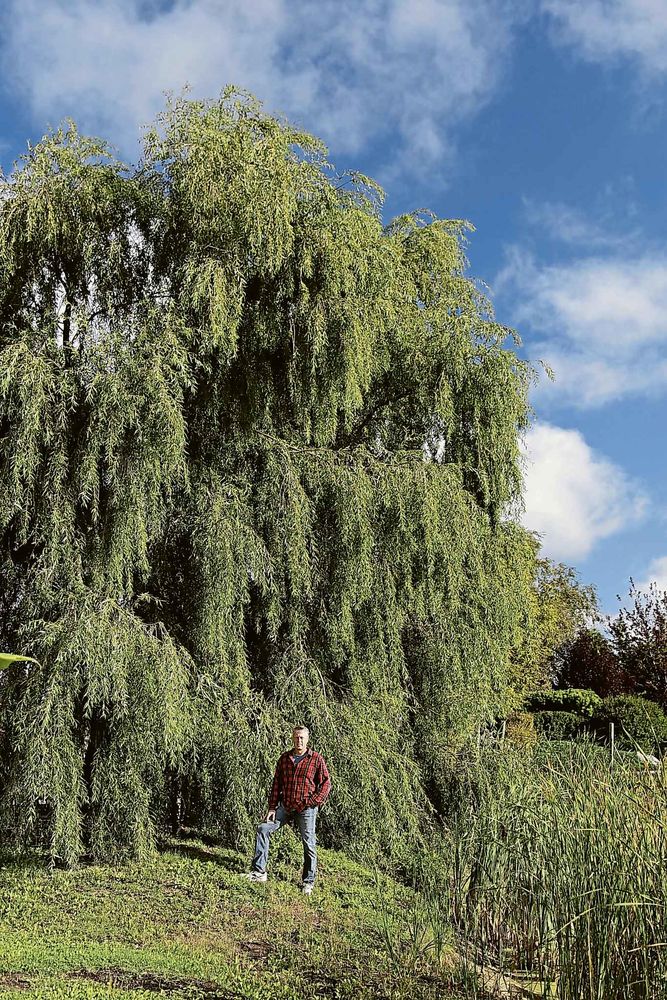
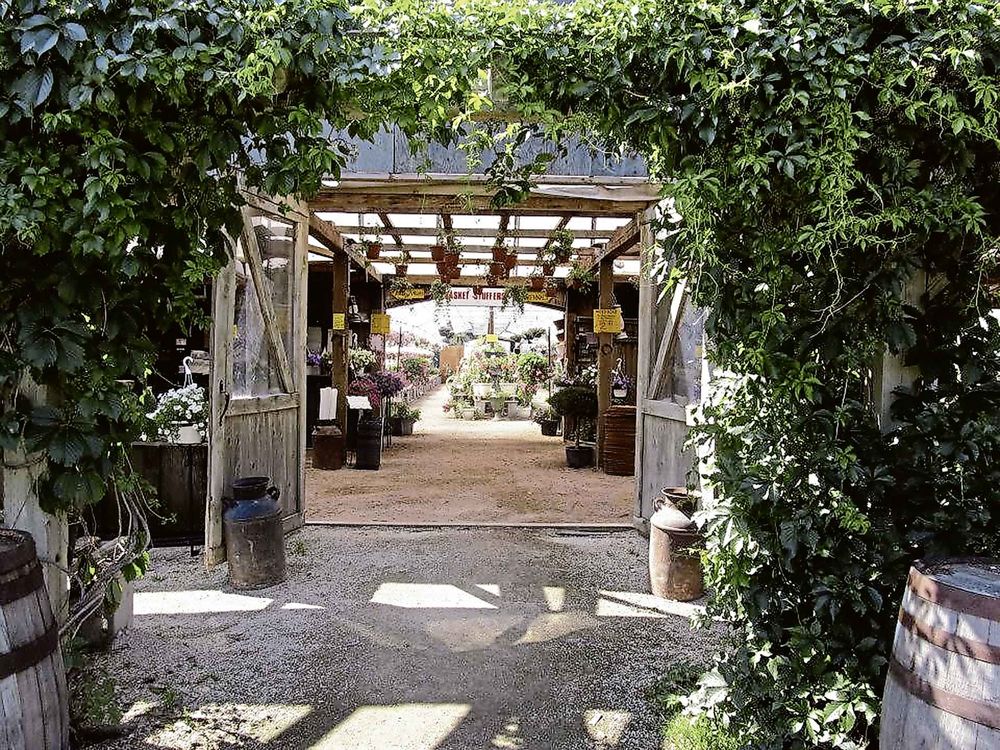

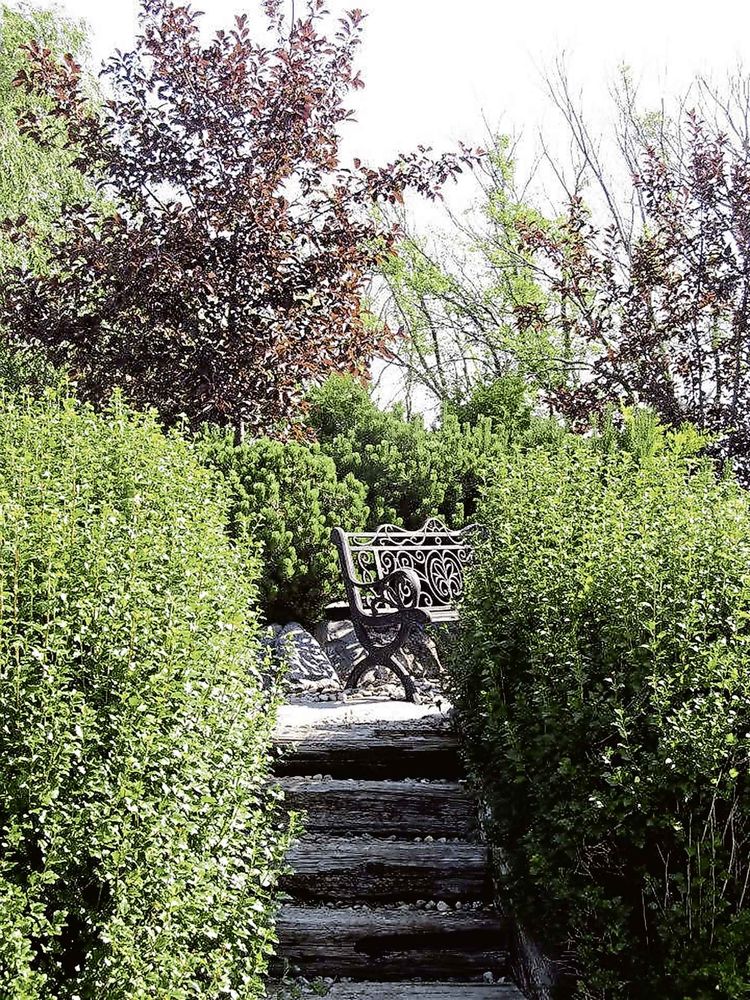
Sheldon Falk is planning and planting for the future because he can. After a brush with death last fall, this May long weekend has special significance.
Falk is the owner of Falk Nurseries, a family-run nursery and garden centre located eight kilometres east of Niverville. Last October, on the way home from a business trip, Falk, along with his son and son-in-law, suffered serious injuries when the car in which they were travelling collided with a moose.
"We were coming home from North Dakota State University’s (NDSU) research arboretum, which is about 30 miles west of Fargo," Falk said when I visited him a few weeks ago at his nursery. Just 45 minutes from home, as Falk approached a slight curve on Provincial Road 201, his son, Ryan, who was sitting in the front passenger seat, said, "Oh no."
"I looked at my son and realized he was staring ahead and so I looked back at the road," Falk recalled. Through the evening mist and fog, Falk suddenly saw a bull moose, more than two metres tall and weighing more than 450 kilograms, galloping at full speed towards them from a distance of only 20 metres away. Unable to swerve in time, the force of the collision smashed the car’s windshield, crushed the engine and tore off the top front half of the car’s roof.
Fast forward to this spring and the deep lacerations that Falk suffered to his face and shoulder are still visible. It has taken several months of intensive physiotherapy to restore most of the range of motion and strength in his right arm. His son, Ryan, who suffered a concussion, as well as a compression fracture of his C1 vertebrae and needed to wear a neck brace for three months, has also recovered. Falk’s son-in-law, Adrian, who was sitting in the back seat at the time of the collision, had glass shards embedded in his skin, which are still working their way out even now.
Falk is well aware that he and his sons are fortunate to be alive. As news of the accident spread throughout Manitoba’s tight-knit horticulture community, there was an outpouring of support.
In the aftermath of the accident, Falk says that it occurred to him he might not be able to return to doing the job he has done for the past 25 years, or at least, not in the same way. Running a busy nursery operation such as Falk Nurseries is a strenuous occupation. A case in point: early this spring, Falk and his sons stood up 28,000 containerized trees and shrubs that had been overwintered by laying them down last fall and covering them with plastic. And that was one of the easier tasks in preparation for the busy spring season ahead.
At garden centres across Manitoba, many of which are family-run operations, the May long weekend is the unofficial start to the gardening season. Owners, staff and shoppers alike will greet one another this weekend like old friends, but at Falk Nurseries, the personal connection will have a deeper sense of meaning.
"We focus and pride ourselves on growing and introducing new plants," Falk says. The nursery carries a range of perennials, edibles and flowering annuals; however, the main focus is trees and shrubs. Indeed, Falk says, his passion is for trees and shrubs and sourcing new and hardy plant selections for his customers that will enhance the beauty of their yards.
On that fateful day last October when Falk travelled to the arboretum at NDSU, it was specifically to see a number of new tree varieties that have promise and potential for those of us who live in the Red River Valley. One variety of interest is Firefall Maple (Acer x freemanii), a fast-growing male tree that produces no seed litter and has deeply lobed cut leaf foliage that turns a brilliant orange-red to burgundy in the fall.
Falk is now trialling Firefall Maple to see if it is hardy enough to survive our winter climate. He tests the trees and shrubs he sells by growing them on his home property. The 10-acre site at Falk Nursery also includes a three-acre arboretum, in part, Falk says, because a picture may be worth a thousand words but seeing what a tree looks like in the landscape as a mature specimen is worth far more.
He is also trialling Northern Empress Japanese elm (Ulmus davidiana var. japonica Burgundy Glow) that has inherent resistance to elm leaf beetles and Dutch Elm Disease (DED). A small to medium size Japanese elm with a mature height of nine metres and width of six metres, the fall colour of Northern Empress starts out apricot-orange then transitions to a unique burgundy-red. Falk expects to make this new elm variety available this fall as a young tree with older, larger specimens available in a couple of years.
This spring, Falk Nurseries is excited to offer Night Rider, a new Japanese elm introduction by Rick Durand, a renowned tree breeder at Bylands Nurseries. A rapid-growing variety in comparison to other Japanese elms, Night Rider is highly resistant to DED. The dark green leaves are textured on the upper surface with a lighter shade on the lower surface. The fall colour ranges from red to a showy deep purple. There is a lot of confidence in this gene pool, Falk says.
Falk says that nurseries are already noticing a shortage of certain tree varieties. Many customers are gravitating towards the same tree specimens, in particular, Silver Maple and some Linden varieties. Surely we have learned by now the important lesson of diversity. "There are reasons to plant strategically and replace strategically because we shouldn’t be looking at just one or two tree species," Falk says. "First of all, it’s boring, but it’s also dangerous."
Why not plant a hardy and unique tree variety such as Ironwood Ostyra virginiana, that has hop-like fruits in summer, or Amur Cork tree (Phellodendron amurense), with its fascinating spongy bark and high tolerance to urban stresses? Falk also recommends Northern Acclaim Thornless Honeylocust that has fragrant spring flowers or an ornamental chestnut tree such as Autumn Splendor Buckeye.
The backdrop to the postcard-pretty outdoor setting at Falk Nurseries includes a pond, waterfall, bridge and sitting areas framed by a magnificent Salix babylonica Lace Weeping Willow. Falk planted it himself 25 years ago. One of his favourite trees, it is a seedless weeping willow whose native origin is northern China. With proven zone 2 hardiness, this exotic looking, fast-growing specimen is tolerant of moist soil. Falk says it is a real beauty for larger spaces.
Falk Nurseries is a popular destination for shrubs. Hands-down, the two most popular varieties he sells are ninebark and hydrangea. Falk is intrigued this spring with a new introduction called Silver Star Dwarf Sea Buckthorn that has silvery foliage similar in appearance to rosemary.
Falk says he is OK with what happened last fall. "It’s a story that points to God’s protection and grace," he says. Now he is looking ahead to planning and planting for the next 25 years.
colleenizacharias@gmail.com

